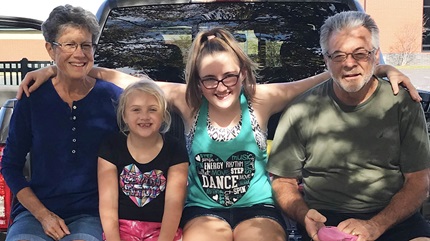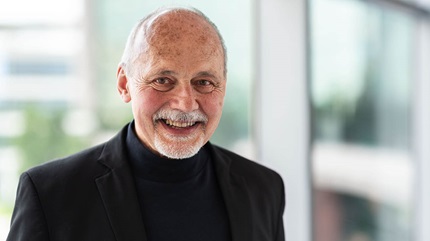Overview & Treatments
Cleveland Clinic is dedicated to being a leader in patient experience, clinical outcomes, research, and education for patients with amyloidosis. Specialists in our Cancer Center and Sydell and Arnold Miller Family Heart, Vascular & Thoracic Institute work together to provide the most advanced treatment options for patients with amyloidosis. Cleveland Clinic is recognized in the U.S. and throughout the world for its expertise and care.
A Team Approach
Depending on the symptoms and type of amyloidosis, there will be different specialty doctors involved. The initial evaluation will be done by one of our amyloid specialists in cardiology or cancer care, with possible additional involvement of specialists in neurology, nephrology, gastroenterology, hematology/oncology, genetics and primary care.
Together, our amyloid specialists explore all options and tailor the most appropriate treatment plan for each patient, taking into consideration your goals and quality of life. Each patient will also have a patient care coordinator to help coordinate appointments with the various specialists involved. The Amyloidosis Center is led by co-directors Jason Valent, MD, from Hematology and Medical Oncology, and Mazen Hanna, MD, from Cardiovascular Medicine.
What is amyloidosis?
Amyloidosis (am-uh-loy-doh-sis) is a protein disorder. In this disease, proteins change shape (misfold), then bind together and form amyloid fibrils which deposit in organs. As amyloid fibrils build up, the tissues and organs may not work as well as they should.
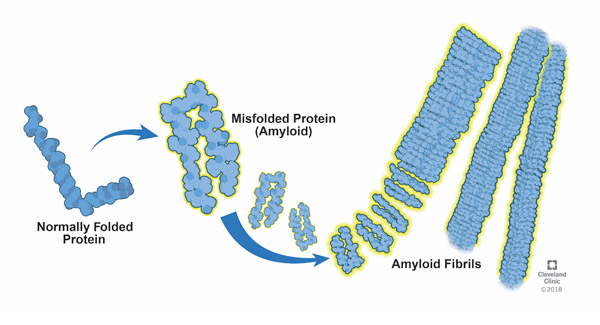
Formation of Amyloid Fibrils |
What are the types of amyloidosis?
There are several types of amyloidosis. Two of the most common types are light chain (AL) amyloidosis and transthyretin (ATTR) amyloidosis.
AL Amyloidosis
Light chains are pieces of antibodies made by white blood cells, specifically plasma cells, in the bone marrow. In AL amyloidosis, a group of plasma cells make too many light chains, which misfold and bind together to form amyloid fibrils. The fibrils are then deposited in organs.
The most common organs affected are the heart and kidneys. Light chain amyloidosis can also affect the stomach, large intestine, liver, nerves, skin and may cause an enlarged tongue.
Treatment: Treatments for patients with AL amyloidosis include various medications. Most patients take one or two chemotherapy drugs plus steroid medication. The medications work together to destroy the plasma cells that make the light chain proteins. A doctor who specializes in blood disorders (hematologist) will create a treatment plan for you.
ATTR Amyloidosis
Transthyretin (trans-thigh-re-tin), also called TTR, is a protein made by the liver that helps carry thyroid hormone and vitamin A in the blood. Normally, TTR is made up of four identical parts. However, in ATTR amyloidosis, the protein becomes unstable, breaks apart, and deposits in the heart and/or the nerves.
There are two types of ATTR amyloidosis: hereditary (familial) and wild-type. The hereditary type can be passed from one generation to the next. The wild type cannot be passed on to family members.
Treatment: There are currently three medications approved by the Food and Drug Administration to treat patients with ATTR amyloidosis. There are also upcoming therapies that act at different points in the disease pathway to address the underlying cause of ATTR amyloidosis. Ask your doctor for more information.
Our Doctors
The Amyloidosis Center brings together specialists in cardiology, cancer care, neurology, nephrology, gastroenterology, hematology/oncology, genetics and primary care.
Our Medical Team
Co-Directors
Cardiologists
Hematologists
Nephrologists
- Tarek Ashour, MD
- Richard Fatica, MD - Department Vice Chair
Neurologists
Florida Medical Team
We also offer amyloidosis treatment at Cleveland Clinic Florida’s Cardiac Amyloidosis Center.
Care Team
Along with our physicians, Cleveland Clinic’s Amyloidosis Center is comprised of several other valuable team members who assist patients throughout their cancer treatment.
Care Coordinators
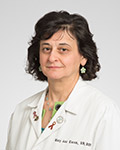 |
Mary Ann Karam, RN, BSN Care Coordinator |
Genetic Counselors
 |
Diane Clements, MS Licensed Genetic Counselor |
 |
Paul Crawford, MS Licensed Genetic Counselor |
 |
Joseph Liu, MS Licensed Genetic Counselor |
 |
Christina Rigelsky, MS Licensed Genetic Counselor |
Pharmacy Team
 |
Marissa Duco, PharmD Clinical Pharmacy Specialist |
 |
Mikhaila Rice, PharmD, BCOP Clinical Pharmacy Specialist |
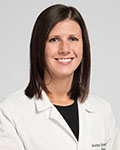 |
Joslyn Rudoni, PharmD, BCOP Clinical Pharmacy Specialist |
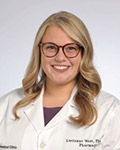 |
Lucy West, PharmD, BCCP Heart Failure and Heart Transplant Clinical Pharmacist |
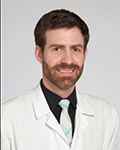 |
Brad Williams, PharmD, BCPS Clinical Pharmacy Specialist |
Research Team
 |
Julie Bevacqua, RN, BSN Research Nurse |
 |
Lauren Ives, RN Research Nurse |
Support & Resources
Cleveland Clinic Resources
For questions or to learn more about Amyloidosis, please contact us at AmyloidProgram@ccf.org
National Resources
- 1.877.269.5643 (1.877.AMYLOID)
- Email: info@amyloidosis.org
- 1.866.404.7539
- Email: info@amyloidosissupport.org
Amyloidosis Research Consortium
- 1.617.467.5170
- Email: arc@arci.org
Cleveland Clinic Amyloidosis Center Facebook Group
The goal of our facebook group is to provide disease education and keep you connected with the latest treatment options, community resources, and upcoming events. It also provides a place where you can connect with others who have amyloidosis or those who are caring for someone with the disease.
Podcasts
Listen to episodes of Cleveland Clinic’s podcasts Cardiac Consult and Love Your Heart about amyloidosis topics:
- Cardiac Consult: Tafamidis treatment of transthyretin mediated amyloidosis (TTR) approved by FDA
- Cardiac Consult: Tafamidis Treatment for Patients with Transthyretin Amyloid Cardiomyopathy
- Love Your Heart: Tafamidis treatment of transthyretin mediated amyloidosis (TTR) approved by FDA
Patient Stories
Hear the inspiring stories of real Cleveland Clinic patients living with Amyloidosis:
- Dallas Physician-turned-patient Travels to Cleveland Clinic for Specialized Complex Care
- Amyloidosis Patient Credits Faith and Family for Survival
- Man Survives Cardiac Arrest, Benefits from First-Ever Drug for Rare Form of Heart Failure
- Grandmother Has Heart and Kidney Transplants, Overcomes Rare Protein Disorder
Clinical Trials & Research
Light Chain (AL) Amyloidosis
Current/Upcoming Trials:
- AFFIRM-AL: A Study to Evaluate the Efficacy and Safety of Birtamimab in Mayo Stage IV Patients With AL Amyloidosis
- CAEL-101: Study to Evaluate the Safety and Tolerability of CAEL-101 inPatients With AL Amyloidosis - NCT04304144
Completed/Not Recruiting:
- CyBorD+/- Dara: CyBorD +/- Daratumumab in Newly Diagnosed AL Amyloidosis - NCT03201965
- Dexamethasone + Ixazomib: Dexamethasone + Ixazomib in Relapsed or Refractory AL Amyloidosis - NCT01659658
- The PRONTO: The PRONTO Study: NEOD001 in AL Amyloidosis - NCT02632786
- The VITAL: The VITAL Study: NEOD001 in AL Amyloidosis - NCT02312206
- Melphalan and Dexameth: Melphalan and Dexamethasone +/- Bortezomib in Previously Untreated AL Amyloidosis - NCT01078454
- High-Dose Melphalan: High-Dose Melphalan and AutologousPeripheral Stem Cell Transplant in Patients with Multiple Myeloma or AL Amyloidosis NCT00064337
Transthyrtein (TTR) Amyloidosis
Current/Upcoming Trials:
- MED-hATTR: Monitoring of Early Disease Progression in Hereditary ATTR Amyloidosis - NCT03431896
- APPOLLO-B: A Study to Evaluate Patisiran in Participants With Transthyretin Amyloidosis With Cardiomyopathy (ATTR Amyloidosis With Cardiomyopathy) - NCT03997383
- HELIOS-B: A Study to Evaluate Vutrisiran in Patients With Transthyretin Amyloidosis With Cardiomyopathy - NCT04153149
- CARDIO-TTRansform: A Study to Evaluate the Efficacy and Safety of AKCEA-TTR-LRx in Participants With Transthyretin‑Mediated Amyloid Cardiomyopathy (ATTR CM) - NCT04136171
Completed/Not Recruiting:
- PXR-004: An antibody against ATTR fibrils (fibril removal) in subjects with hereditary amyloid transthyretin (hATTR) amyloidosis - NCT03336580
- Anti-SAP: Treatment Study (AL & ATTR) - NCT03044353
- ATTR-ACT: Safety and Efficacy of Tafamidis in Patients with ATTR Cardiomyopathy - NCT01994889
- ALN-TTRSC (Revusrian): Revusiran in Patients with Transthyretin (TTR)Cardiac Amyloidosis - NCT01981837
- ENDEAVOR: Revusiran (ALN-TTRSC) in ATTR-Mediated Familial Amyloidotic Cardiomyopathy - NCT02319005
- Inotersen Expanded Access: Inotersen Expanded access Program - NCT03400098
- Carpal Tunnel: Carpal Tunnel Syndrome and Amyloid Cardiomyopathy (AL & ATTR) - NCT02792790
- AG10: Efficacy and Safety of AG10 in Subjects with Transthyretin Amyloid Cardiomyopathy - NCT03860935
Other Amyloidosis Trials
Current/Upcoming Trials:
Completed/Not Recruiting:
Medical Professionals
Cleveland Clinic is committed to working with you to provide the best care for your patients. Our team is also dedicated to the training and education of medical professionals to advance care and research of amyloidosis.
To refer a patient to our Heart, Vascular and Thoracic Institute, please contact our Referring Physician Hotline, available every day from 7 a.m. to 7 p.m. EST for all your needs, by calling 855.REFER.123 (855.733.3712).
Make An Online Referral to Cleveland Clinic Cancer Center
To make a direct online referral to our Cleveland Clinic Cancer Center, complete our Online Cancer Patient Referral Form or visit clevelandclinic.org/cancerpatientreferrals.
You will receive confirmation once the appointment is scheduled.
- View our Cancer Center resources for Medical Professionals
- View our Heart, Vascular and Thoracic Institute resources for Medical Professionals
Consult QD
Find helpful posts from Cleveland Clinic’s site for physicians and healthcare professionals. Discover the latest amyloidosis research insights, innovations, treatment trends and more:
- Combination Therapy Shows Promising Results for Treatment of Systemic Light-Chain Amyloidosis
- Research Shows Daratumumab’s Effectiveness in AL Amyloidosis
- Antibody Treatment Holds Promise for Patients with Relapsed or Refractory Light-Chain Amyloidosis
- New Chemotherapy Regimen Proves Effective in Treating Amyloidosis
